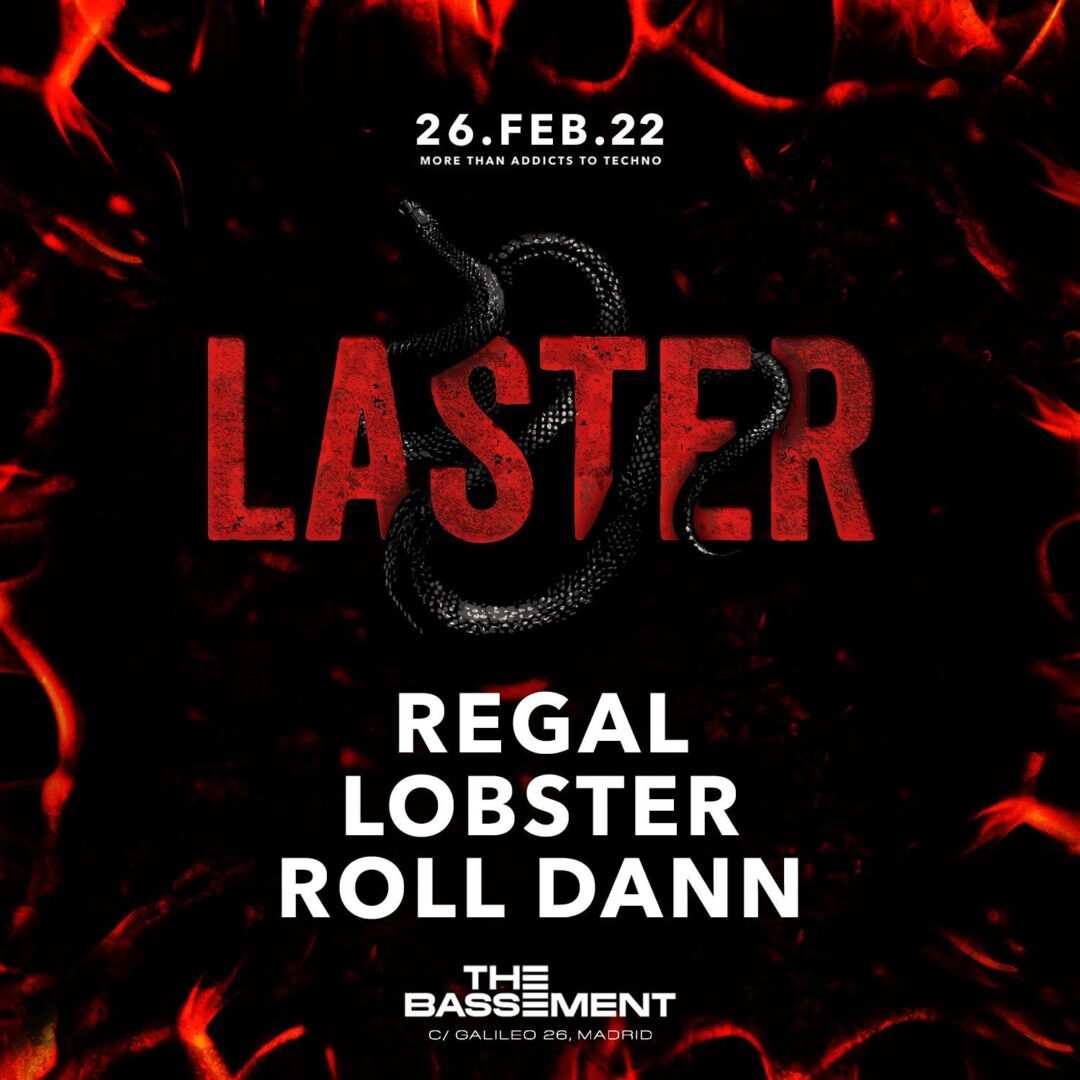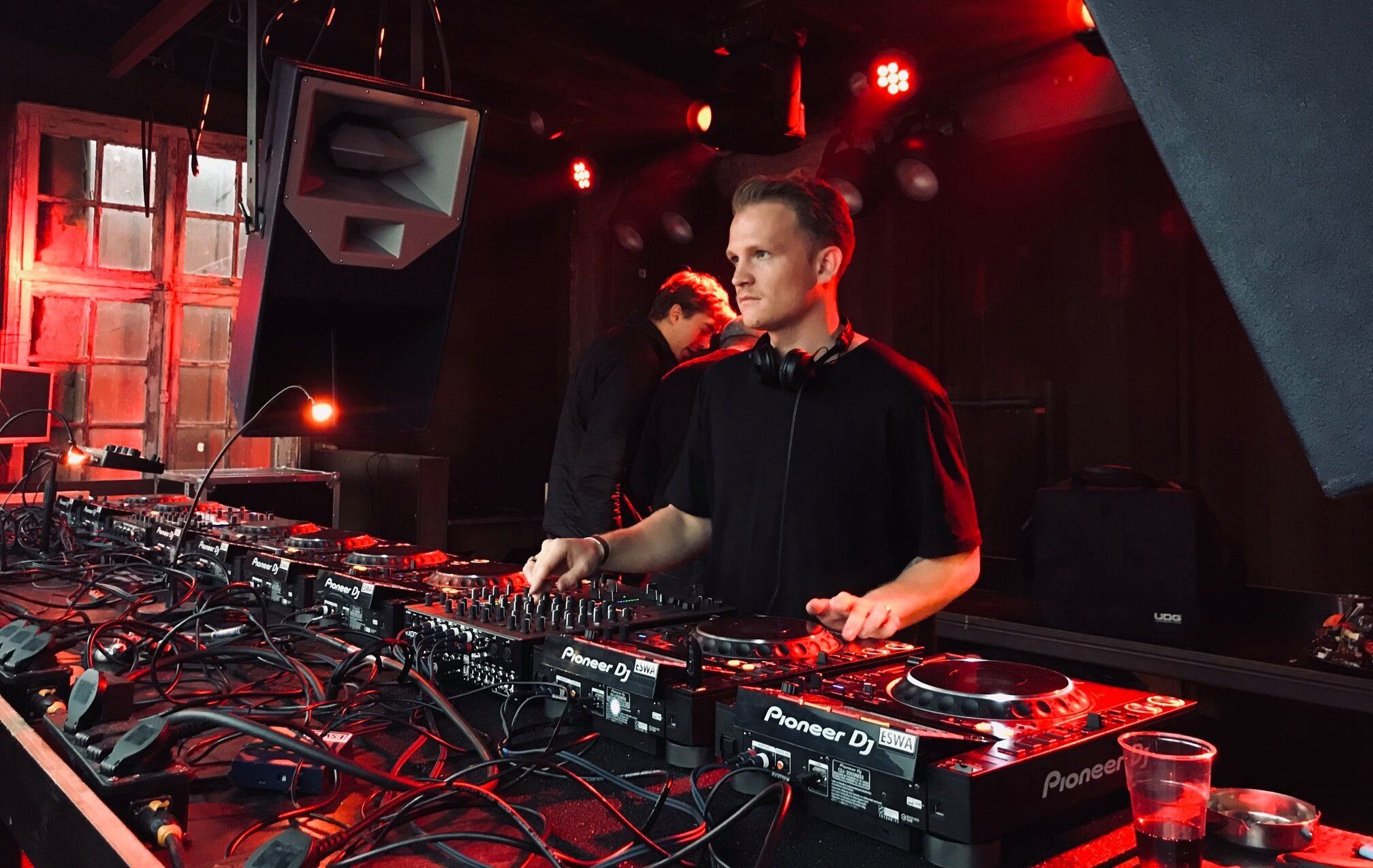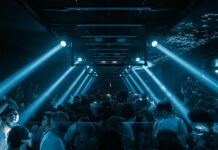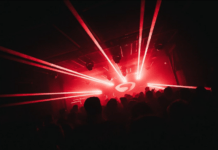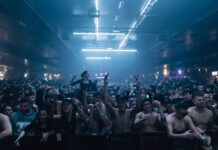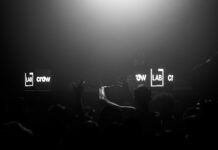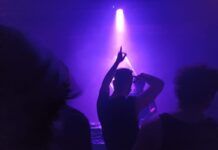Charlamos con una de las piezas de la escena holandesa actual. Procedente de Amsterdam, Lobster nos habla sobre su debut en España, sus residencias, su opinión de la escena techno y más
Quedan cuatro noches para que llegue el inminente debut del holandés Lobster en nuestro país. El residente de Vault Sessions se ha labrado una gran reputación en las cabinas holandesas y, ahora, empieza a despuntar también como productor. Con su llegada a Laster este próximo sábado, junto a Regal y Roll Dann, hemos querido hacerle varias preguntas sobre varios temas muy interesantes y conocerlo un poco más. Vamos con la entrevista.
WS: Al ser de Holanda y en concreto Amsterdam, la música electrónica te rodea de forma inevitable. ¿Cómo llego la música electrónica a tu vida? ¿En qué momento decidiste convertirte en DJ?
L: Lo primero de todo, ¡gracias por vuestro tiempo y por montar esta entrevista!
Cuando era más joven, solíamos hacer viajes largos para visitar a mi familia o irnos de vacaciones. Mis padres solían poner CDs de los Rolling Stones, Prince y The Beatles, y recuerdo que me gustaba mucho. Poco después recibí mi primera batería digital para tocar en casa y practicar con diferentes ritmos. Aparte de eso, mis abuelos maternos son de Indonesia y están relacionados de cerca con los Tielman Brothers, una banda de rock holandesa-indonesia. ¡A mi familia le encanta bailar y siempre hay música! Así que hubo múltiples influencias musicales en mi infancia.
Cuando empecé a ir a fiestas de techno con 17 años, me enganché al momento. Cuando pisé la pista de baile por primera vez en mi vida, fue muy natural. Esta música era algo nuevo para mí, pero era tan fácil de consumir. Después de media hora perdí a todo el mundo con quién fui a la fiesta, pero eso no importó (risas). Me lo pasé genial; fue un momento que cambió mi vida. Cuando cumplí 20, compré mi primera controladora para pinchar para mis amigos en un afterparty en Amsterdan. Rápidamente se convirtió en un hobby que se fue de las manos. Pronto me di cuenta de que pinchar frente a la gente me hacía muy feliz. Incluso si era para 10 personas o menos, había algo mágico en ello. En ese momento me registré para una talent night en Poema, en Utrecht, y decidí que quería centrarme en comentar en la profesión de DJ. La música que pinchaba en aquel entonces no encaja con mis gustos actuales en absoluto, pero estaba nervioso de cojones. Nunca olvidaré esa adrenalina. Sentí como si hubiera descubierto una nueva pasión. Poco después empecé a pinchar más en Amsterdam y alrededores y ahí es cuando realmente empezó todo.
WS: Being from the Netherlands and specifically Amsterdam, electronic music surrounds you inevitably. How did music get to your life? When did you decide to become a DJ?
L: First of all, thank you for your time and setting up this interview!
When I was younger, we used to go on long road trips to visit family or go on holidays. My parents used to play cd’s by The Rolling Stones, Prince and The Beatles and I remember I really liked that. Soon after that I got my own little electrical drum-kit to play at home to just practice and play different kind of rhythms. Besides that, my mother’s parents are originally from Indonesia and are closely related to the Tielman Brothers, a Dutch-Indonesian rock band. My family loves to dance and there was always music! So that means that there were multiple musical influences in my childhood.
When I started visiting techno parties when I was 17, I was instantly hooked. When I stepped onto the dancefloor for the first time in my life, it felt so natural. This music was unknown to me, but it was so easy to consume. After half an hour I lost all the people I went to the party with. But that didn’t matter to me “laughs”. I had the best time; it was a life changing moment for me. When I turned 20, I bought my first DJ-controller to play for my friends at afterparty’s in Amsterdam. This quickly became a hobby that got out of hand. I soon realized that playing in front of people was something that made me very happy. Even if it was for 10 people or less, there was something magical about it. At that moment I signed up for a talent night at the Poema in Utrecht and I decided that I wanted to focus on stepping into the DJ profession. The music I played back then doesn’t match my current taste at all, but I was nervous as hell. I’ll never forget that adrenaline. It felt like I discovered a new passion. Soon after I started playing more in and around Amsterdam and that’s where it actually all began
WS: Una de las cualidades que te representan es tu amplio archivo musical, en el cual podemos encontrar ghetto house, electro o techno, algo esencial para poder adaptarse al cualquier momento en la pista de baile. ¿Cuál es tu enfoque a la hora de pinchar? ¿Cuáles fueron tus influencias?
L: Pincho sobre todo techno, pero siempre traigo varios estilos musicales conmigo para adaptarme al momento. Cada pista de baile tiene diferentes necesidades y, al fin y al cabo, estoy ahí como DJ para crear recuerdos para el asistente. Por eso estoy siempre leyendo al público, buscando una conexión para crear preciosos recuerdos juntos y ser uno con la música. La lista de influencias es larga, pero por nombrar a algunos que han influenciado mi gusto musical y mi manera de pinchar diría que por supuesto Ben Klock y Freddy K. Ambos son pioneros y tienen mi máximo respeto. Pero también Ben Sims, DVS1, Luke Slater, Oscar Mulero, Steve Rachmad y Blawan. Como dije, es una lista larga (y aún sigue).
WS: One of the qualities that represent you the most is your wide musical archive, in which we can find ghetto house, electro or techno, something essential to adapt yourself to the dancefloor anytime. What is your focus at the time of DJing? Which were your influences?
L: I mainly play techno, but always bring various styles of music with me so I can adapt to the moment. Every dancefloor has different needs and in the end, I’m there as a DJ to create memories for the visitor. That’s why I’m constantly reading the audience, looking for a connection so we can make beautiful memories together and be one with the music. The list of influences is long but to name a few that influenced my musical taste and way of playing are definitely Ben Klock and Freddy K. Both are pioneers and have my ultimate respect. But also Ben Sims, DVS1, Luke Slater, Oscar Mulero, Steve Rachmad and Blawan. As I said, it’s a long list (it goes on).
WS: En Amsterdam eres residente de Vault Sessions, una de las marcas más importantes del país holandés. ¿Cómo empezó tu relación con la promotora?
L: Cuando me mudé a Amsterdam en 2015 salía mucho a los clubes. La cultura nocturna me pareció muy inspiradora y conoces a gente que quizá no conocerías jamás. A través de esta vida nocturna forjé algunas grandes amistades y así es como conocí a los chicos de Vault Sessions. Aparte de la conexión musical y de una pasión compartida, nos convertimos en muy buenos amigos con los años. Me han enseñado mucho sobre música de buena calidad, algo por lo que siempre estaré agradecido. Empecé pinchando en su radioshow mensual Radio Nachtlab, en b2b con Lexed (la mitad de VSC) y desde ahí me han seguido apoyando. Destaqué el hecho de que me apoyaran no por ser colegas, sino porque creían en mi propuesta musical. Y lo siguen haciendo. Este equipo se siente como una familia, su público es la leche y Bret incluso más. Ahora que soy uno de sus residentes estoy muy emocionado por ver qué nos depara el futuro.
WS: You are resident of the Vault Sessions in Amsterdam, one of the most important brands in the Dutch country. How did your relationship start with the promoter?
L: When I moved to Amsterdam in 2015, I went clubbing a lot. I found the nightlife inspiring and you meet people you might never meet otherwise. Through this nightlife I made several major friendships and this is how I met the guys from Vault Sessions. Apart from the musical connection and shared passion, we grew into really good friends over the years. They’ve taught me a lot about good quality music, something for which I am forever grateful. I started playing for their monthly radio show at Radio Nachtlab, back2back with Lexed (1/2 of VSC) and from there they continued to support me. I pointed out that I find it important that they supported me not because we are homies, but because they really stand behind my musical output. And they do. This crew feels like family, their crowd is insane and Bret even more. Now that I’m one of their residents I’m really excited to see what the future will bring us.
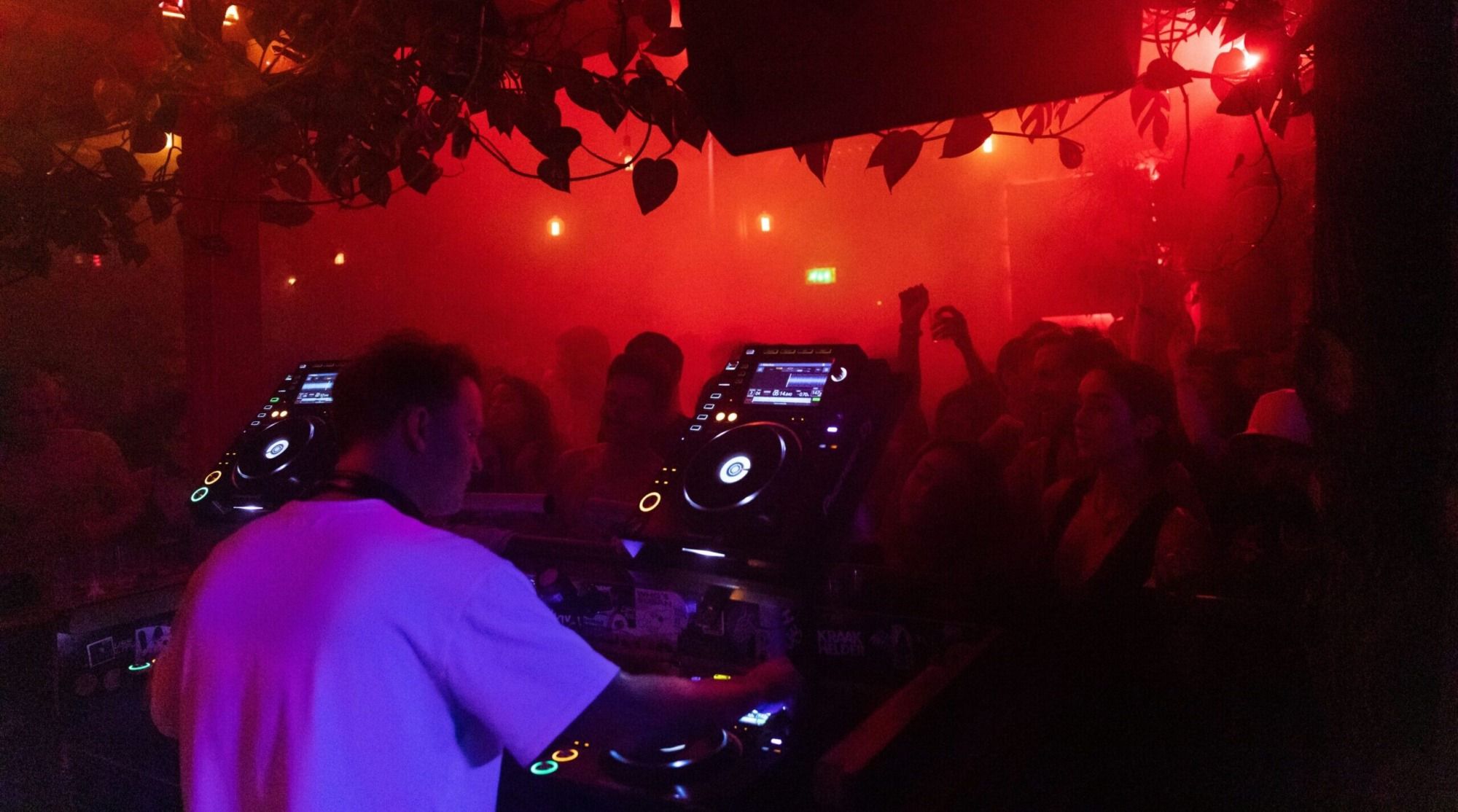
WS: Antes de entrar a formar parte de los residentes de Vault Sessions fuiste residente en Orphic, colectivo de música electrónica con base en Amsterdam. ¿Qué aprendiste en tu paso por Orphic?
L: Todavía me siento súper conectado con Orphic. Las personas involucradas están haciendo todo con pasión y la comunidad que lo rodea es realmente especial. Es una atmósfera abierta donde puedes ser tú mismo, libre de juicios y hacer lo que te hace sentir bien en el momento. He sido residente durante 2 años y medio allí y todavía estoy muy agradecido por todas las experiencias y conexiones únicas que hice. Mi sonido maduró enormemente durante mi tiempo en Orphic y realmente puedo decir que crecí como persona y como artista. Orphic realmente se enfoca en brindar una plataforma al talento y quiere ayudar a hacer crecer una escena inclusiva con nuevos DJ sorprendentes en lugar de los mismos nombres conocidos. Como residente conocimos DJs que Vinieron a nosotros en busca de consejos y trucos, pudieron construir en su red y pudieron jugar con equipos profesionales. Hoy en día estos artistas muestran verdadero potencial y determinación. Eso, de nuevo, es un ejemplo de lo especial que es la pandilla y la comunidad de Orphic.
WS: Before being part of the Vault Sessions residents you were resident in Orphic, an electronic music collective based in Amsterdam. What did you learn from your time in Orphic?
L: I still feel super closely connected to Orphic. The people involved are doing everything from passion and the community that comes with it is really special. The is an open atmosphere where you can be yourself, free of judgement and do what feels good in the moment. I’ve been a resident for 2,5 years there and I’m still so thankful for all the unique experiences & connections I made. My sound matured massively during my time at Orphic and I can truly say I grew as a person and artist. Orphic really focusses on giving talent a platform and want to help grow an inclusive scene with new surprising DJs instead of the same household names. As a resident we got to know DJs that are just starting out during the “DJ-nights”. They came to us for tips and tricks, they got to build on their network and they could play on professional gear. Nowadays these artists show real potential and determination. That again, is an example of how special the Orphic gang and community is.
WS: Tu experiencia te ha convertido en todo un experimentado en cabina, en uno de los lugares con más cultura de música electrónica. ¿Qué diferencia al público holandés del resto de Europa y del mundo?
L: Aquí en Holanda, estamos bendecidos con la oferta semanal que existe de artistas, fiestas y festivales de calidad. A veces siento que estamos un poco mimados en comparación con el resto del mundo. Pero ahora, después de varios confinamientos y mucho tiempo sin ocio nocturno, no creo que haya mucha diferencia entre el público holandés y el resto del mundo. Todo el mundo anhela la música a todo volumen, una pista de baile sudorosa y largas sesiones de buenos DJs. Lo que creo que es maravilloso es ver es cómo la cultura clandestina ha asegurado que las personas hayan podido seguir quedando durante los últimos dos años. Yo mismo pinché en muchas fiestas ilegales en Ámsterdam y el público que acude a ellas es realmente gente que vive con pasión y dedicación por la música y que realmente la necesita. Aquí tenemos una hermosa escena underground de mente abierta y una multitud que sabe lo que está ocurriendo.
WS: Your experience has turned you into a whole experiment in the DJ booth, in one of the places with the biggest electronic music culture. What’s the difference between Dutch audience and the rest of Europe and the world?
L: Here in the Netherlands, we are blessed with the weekly offer of quality artists, parties and festivals. Sometimes I feel like we’re a little bit spoiled in contrast to the rest of the world. But now after several lockdowns and a long time without nightlife, I don’t think there is much difference between the Dutch crowd and the rest of the world. Everyone is craving loud music, a sweaty dancefloor and long sets from good DJs. What I think is wonderful to see is how the underground culture has ensured that people have been able to continue to meet each other over the past two years. I myself played at many illegal parties in Amsterdam and the audience that comes to that are really people who live with passion and dedication for the music and who really need it. We have a beautiful open minded underground scene here and a crowd that knows what’s up.
WS: También tenemos que hablar de tu faceta como productor. En los últimos meses nos has presentado ‘Sacrifice To Achieve’ y ‘Slave To The Money’. ¿Cómo te encuentras con estos dos primeros lanzamientos? ¿Algo que adelantar en este 2022?
L: Durante los últimos seis años mi objetivo principal ha sido pinchar música, más que hacerla yo mismo. Siempre era un objetivo, pero nunca me puse a ello. Cuando se anunció el primer confinamiento en Holanda, decidí centrarme más en la parte de la producción. Me pareció muy satisfactorio hacer mi propia música, la cual también pincho yo mismo, o que me encantaría escuchar en un club. He tenido Ableton en mi portátil durante varios años, pero nunca hice nada consistente con él. Descubrí que si le dedicaba al menos una hora diaria a la producción, avanzaría y me familiarizaría con el software. Por supuesto, tengo amigos que han estado produciendo durante más de diez años y eso me daba un extra de motivación. Confiaba más en mí mismo en el estudio y una vez me mudé y construí mi propio estudio en casa, empecé a ver resultados serios. Ahí fue cuando hice ‘Sacrifice to Achieve’, el primer tema que saqué. Hoy en día trabajo de manera muy disciplinada en mis producciones con dos o tres días de estudio fijos y algunas tardes que tengo libres. Estoy muy orgulloso de mis últimos tres trabajos realizados, que muestran diferentes facetas de mí como productor, lo cual también amplía mi sonido como DJ.
Tengo algunas cosas chulas planeadas para 2022. Lo primero de todo, voy a lanzar mi primer EP en solitario, por el cual estoy muy ilusionado. Poco después hay un segundo EP planeado que saldrá en vinilo. Además, contribuiré a varios VAs muy interesantes y haré un EP a medias con un muy buen amigo mío. Mi objetivo este año es dar forma a mi sonido aún más y ceñirme a mí mismo lo máximo posible. Producir es algo muy íntimo y personal, así que especialmente si voy a sacar un EP, quiero que se sienta 100% bien.
WS: We also need to talk about your producer side. In the last few months you have release ‘Sacrifice To Achieve’ and ‘Slave To The Money’. How are you feeling with this first couple of releases? Something you can tell us ahead of 2022?
L: For the last 6 years my main focus has been on playing music, rather than making it myself. It was always a goal, but never really got to it. When the first lockdown was announced here in the Netherlands, I decided to focus more on the production part of music. It seemed to me such a satisfaction to make my own music, which I would also play myself, or would love to hear in a club. I’ve had Ableton on my laptop for several years, but never really did anything consistent with it. I found out if I would give myself at least one hour a day towards producing, I would make steps and get more familiar with the software. Of course, I had friends who were producing for 10+ years already so that gave me a boost as well. Slowly I got more confident in the studio and once I moved places and built my own studio at home, I started to see serious results. That’s when I made Sacrifice to Achieve, the first track I ever put out. Nowadays I work in a disciplined way on my productions with two/three fixed studio days and some evenings when I have them free. I’m really proud on my three latest’s released works, which showcase different sides of me as a producer, which also amplify my sound as a DJ.
I already have some cool things planned for 2022. First of all, I’m going to release my first solo EP, which I’m really excited about. Shortly after there is a 2nd EP planned which will come out on vinyl. Furthermore, I’ll be contributing to some interesting VA’s and I’ll be doing a split-EP with a close friend of mine. My goal for this year is shaping my sound more and to stay as close to myself as possible. Producing is something very intimate and personal, so especially if I want to release an EP, I want it to feel 100% right.
WS: La escena techno presenta actualmente cantidad de vertientes y direcciones, con un elenco de artistas, sellos y colectivos que presentan una alta actividad, ¿hacia dónde crees que se dirige el movimiento? ¿Cuál crees que va a ser la tendencia predominante en los próximos meses?
L: Vivimos en una época de ritmos rápidos. Lo más rápido a menudo se percibe como lo mejor y seguirá siendo así en los años venideros. Mientras que hace 10 años 130BPM parecía “rápido”, la norma es que ahora sea 140-145BPM. No me quejo, ¡me gusta la velocidad! Solo cuando voy a un club y veo al DJ que abre pinchando a este tempo, entonces creo que es vergonzoso. No deja hueco a los DJs que van luego y creo que una noche de club debe evolucionar y construirse hacia el final del cierre. Así que, soy bastante fan de esta última moda, pero por favor, ¡respetad los horarios!
WS: The techno scene presents a lot of different variants and directions, with a team of artists, labels and collectives that present a high activity, where do you think this is heading? What do you think it is going to be the big trend within the next few months?
L: We are in a fast-paced era right now. Faster is often seen as better and will continue to be so for a few years to come. Where 10 years ago 130 bpm was seen as “fast”, the norm is now 140-145 bpm. I’m not complaining, I like pace! Only when I go to a club and I see the opening act already playing at this tempo, then I think that’s a shame. It leaves zero to no room for the DJs afterwards + I think a club-night has to evolve and build up to the finale of the closing act. So, I’m definitely a big fan of the latest trend, but please respect the timetable!
WS: Ahora llegas a España para realizar tu debut en Laster junto a Regal. ¿Qué esperas de esta noche?
L: He escuchado grandes historias sobre los clubes españoles y su público. Estamos seguros de que montaremos una buena.
WS: Now you are coming to Spain to make your debut in Laster alongside Regal, what do you expect from tonight?
L: I heard the best stories about Spanish clubs and crowds. We’ll definitely make it a wild one!
